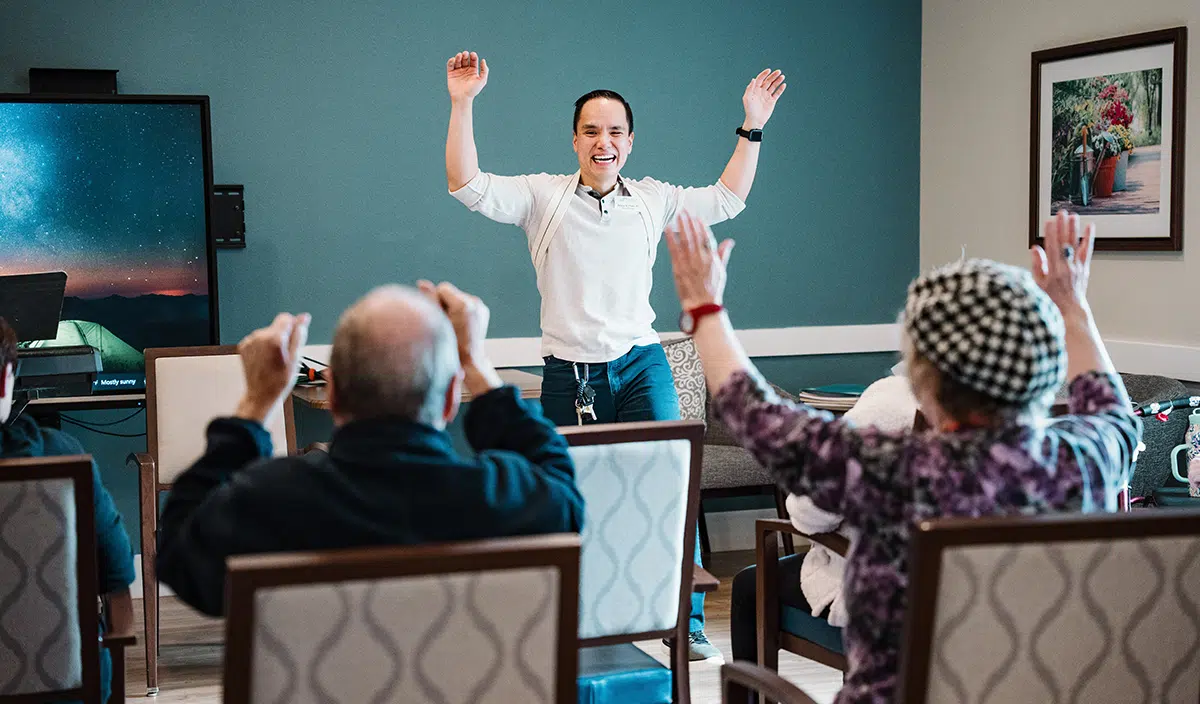
We all know that physical activity is essential for a healthy lifestyle. It boosts fitness, enhances well-being, and—especially for individuals living with dementia—offers valuable social interaction and a sense of independence.
Many find that even a little light exercise lifts their mood and motivates them to keep doing the things they enjoy. While exercise hasn’t been shown to slow the progression of dementia, some studies suggest it may improve certain aspects of memory, helping people recall past events more clearly. And when it comes to staying active, even a little bit is better than none.
If you are caring for a loved one with dementia, consider adding more movement into their daily routine. The Alzheimer’s Society has published some exercise tips starting with slow and easy up to vigorous exercise. We’ve summarized them as follows:
Low impact:
Individuals in the mid to later stages of dementia will have mobility issues that will make it more challenging to engage in standard exercises. It is still important, however, for them to move to keep their muscles as strong as possible and optimize circulation.
Moderate impact:
These activities will make your loved one breathe faster and feel warmer. Experts note that an activity is considered “moderate” when one is able to talk, but not sing the words to a song without getting a bit out of breath.
High impact:
Most appropriate for individuals in earlier stages of dementia, especially who have been physically active all their lives. Experts note that vigorous activity will make one breathe hard and fast, finding it hard to say more than a few words before they are out of breath. Your loved one should be monitored carefully, watching for signs of fatigue.
Important note: An “easy does it” approach will make exercise routines healthier and more fun.
When introducing exercise into your loved one’s daily routine, start slowly and build up gradually. Make sure they warm up before moderate or vigorous activities. Don’t push too hard—if they seem tired or uncomfortable, it’s time to pause and rest. A gentle, “easy does it” approach is best. Also, be sure to consult their physician before beginning any new exercise program.
If possible, join them! Exercising together can be a meaningful way to connect, engage, and enjoy quality time side by side.
Our Anthem Memory Care communities are full of active residents who enjoy walks in the park, strolls around the grounds, and regular exercise sessions that are fun and get their hearts pumping. We welcome you to visit any of our communities and watch a session for yourself. We’ll be happy to answer any questions you may have. We’re here to help!